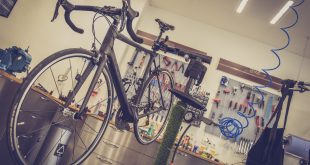Last month, BikeBiz exclusively revealed plans for the New Ideas Fund, a £100,000 pot of cash to be awarded annually to projects across the UK to get more people on bikes. The New Ideas Fund is the creation of the Bike Hub committee and accounts for 25 per cent of the monies raised by the Bike Hub levy scheme. The remainder of the levy money is spent on the Bike It schools project; Bikeforall.net; and Bike Week.
The £100,000 will go to a project, or projects, which would be most likely to ‘go national’. So, they could start as local projects but, once scaled up, could become as successful as the Bike It scheme. This Sustrans-mananged project started in 2004 with four officers (paid for by the Bike Hub levy money) and now has 40 officers (paid for from a variety of sources, as well as Bike Hub). Bike It officers adopt a set number of schools and encourage them to increase the levels of school cycle commuting. At some schools, growth has been meteoric and local bike shops have benefitted from the explosion in cycling.
Bike Hub chair Phillip Darnton sees the New Ideas Fund as a ‘mighty oaks from little acorns’ project, with the ability to spread bicycle culture across the UK.
The fund is similar to a scheme created in 2002 by the time eager to get bicycle projects off the ground to bolster the National Cycling Strategy. The Cycling Projects Fund had £2m p.a. and ran for two years. In its first year it saw 466 applications for funding.
Some of the projects which got cash included schemes from schools; hospitals; and bicycle businesses such as Jim McGurn’s Company of Cyclists, and the Mud Dock bike shop of Bristol, both of which received grants of £50,000. Mud Dock used the cash to build a cycle resource centre that also extended the shop’s cafe roof terrace.
Most of the schemes awarded cash from the DfT’s Cycling Projects Fund were local, much of them for cycle parking facilities. Such amenities are essential, but they are not scalable nationally.
For instance, the National Trust received money from the DfT for creating cycle facilities at a number of the Trust’s historic properties. By definition these facilities were local but the National Trust flagged the scheme to make the organisation more cycle friendly. The pro-bike policies are included in the National Trust’s handbook and on its website. The Trust reported that the facilities had a positive increase on the number of visitors arriving by bike. Cycling activities were added at some properties and incentives for visitors arriving on bikes, such as reduced admission fees and free drinks.
The Bike Hub’s New Ideas Fund wants to identify and fund similar schemes. Unlike the DfT scheme, which had no minimum funding amount, the Bike Hub scheme has set a £20,000 minimum. So, the £100,000 annual award could be split five ways, or it could go to one larger project. Phillip Darnton says: "The cycling project needs to be managed as a not-for-profit activity. Projects should cost not less than £20,000 locally, and should be scaleable eventually to become national schemes. You will need to tell us what other contribution you can make to our own funding to make sure that, together, we get quick results."
This match-funding need not be equal to the amount being requested and can be in-kind funding. An application form is now available on bikeforall.net.
Bike shops are invited to apply. To be successful, the project must not be financially connected to the business and the project must have the potential to work across England, Wales, Scotland and Northern Ireland. So, a bike shop could create, for instance, a children’s cycle maintenance class called Mucky Pups and it could be run from the shop putting in the bid. But it would need to be set up so Mucky Pups could be extended across the UK, taken up by other bike shops, too, and run as a separate organisation.
The Bike Hub committee will be looking at these criteria:
1. Outline of the proposal
2. How it will achieve more new cyclists
3. How will the scheme be managed
4. How will the scheme be monitored
5. Is it scaleable?
6. When could it start?
7. What publicity, both local and national could it receive?
8. What funding/other contributions are envisaged (ie match-funding)
9. Have you already got a commercial sponsor?
10. The project must supply financials on a spreadsheet and there must be a business plan.
Who runs Bike Hub?
The Bike Hub committee is made up of members of the bicycle industry, supply and retail: Phillip Darnton; Mark Brown (ACT); John Moore (Moore Large); Carlton Reid (BikeBiz); Richard Allmark (Fishers); Richard Hemington (Specialized); Ian Beasant (Giant); Andy Shrimpton (Cycle Heaven, York); Chris Compton (Compton Cycles, London).
 BikeBiz Bicycle and cycling retail news
BikeBiz Bicycle and cycling retail news



